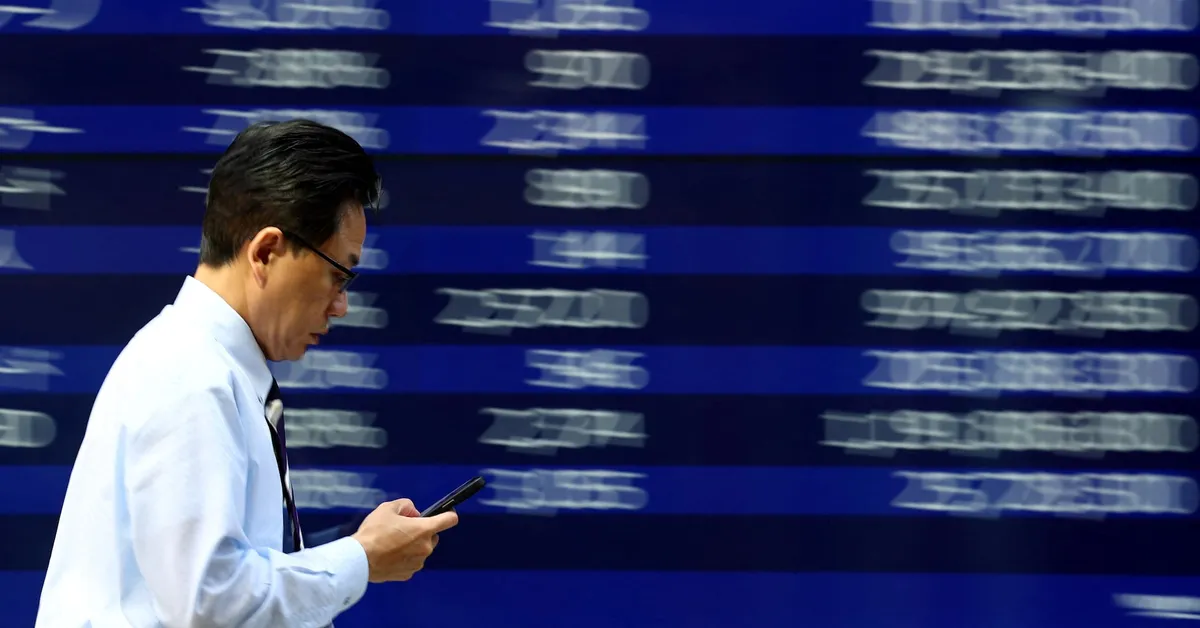
On July 25, 2023, Asian shares experienced a downturn, pulling back from record highs as investors began to lock in profits. Notably, Japan's market saw a significant retreat, coinciding with growing political uncertainty and the impending tariff deadline set by U.S. President Donald Trump. This week is poised to be pivotal, with various central bank meetings and important economic reports on the horizon.
The U.S. dollar gained traction against major currencies after bouncing back from a two-week low recorded on Thursday. This recovery was bolstered by robust economic data from the U.S., providing a much-needed boost to investor confidence. Specifically, Japan's currency faced downward pressure, primarily influenced by reports suggesting that Prime Minister Shigeru Ishiba may step down, adding to the political uncertainty.
Benchmark Japanese government bond yields remained just below their highest levels since 2008, reflecting concern over the economic outlook. Analysts from the Commonwealth Bank of Australia indicated that while trade agreements could alleviate some global economic risks, the overall tariff rate is expected to settle at a higher level than previously anticipated by the end of 2024. They predict that increased tariff costs will likely lead to higher consumer price inflation in the U.S., ultimately dampening economic growth.
Next week is pivotal for U.S. investors, who will face Trump's August 1 deadline for trade deals, a Federal Reserve policy meeting, and the highly anticipated monthly payrolls report. Major earnings reports from tech giants like Amazon, Apple, Meta, and Microsoft are also on the agenda. Additionally, the Bank of Japan is scheduled to announce its policy decisions on Thursday, coinciding with a meeting of Ishiba's Liberal Democratic Party.
In Europe, the European Central Bank (ECB) opted to maintain its current interest rates on Thursday, pausing its easing campaign as it awaits further assessment of the impact from U.S. tariffs. The euro concluded the session down 0.2% against a strong dollar, remaining relatively unchanged at $1.1744 on Friday.
As the dollar advanced 0.1% to 147.10 yen, adding to a 0.4% gain from Thursday, market analysts are closely monitoring U.S. Treasury yields. On Friday, the yield on 10-year U.S. Treasuries edged down to 4.39%, effectively reversing Thursday's advance. In Japan, equivalent government bond yields eased by 1 basis point to 1.59%, just shy of this week's high of 1.6%, a level not seen since October 2008.
Political dynamics in Japan are shifting, with rising concerns that the political landscape is leaning towards fiscal stimulus. This comes following significant gains for opposition parties advocating for consumption tax cuts in the recent upper house elections. Pressure is intensifying on Ishiba, particularly after his coalition lost its majority in the vote, mirroring a similar outcome in the lower house elections last October.
In the commodities market, gold prices softened by 0.3%, settling around $3,356 per ounce. Meanwhile, Brent crude futures rose by 0.5% to $69.53 a barrel, with U.S. West Texas Intermediate crude futures also gaining 0.5%, reaching $66.36 per barrel. These fluctuations illustrate the ongoing volatility in the global commodities market amid shifting economic conditions.
Reporting by Kevin Buckland; Editing by Lincoln Feast and Sam Holmes.